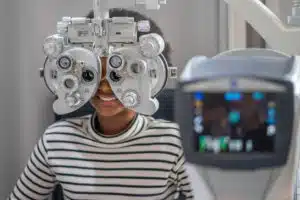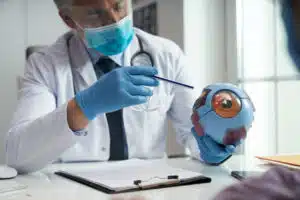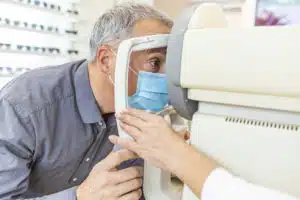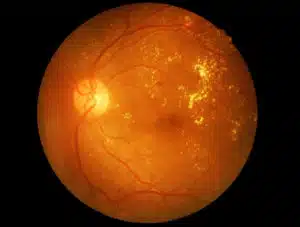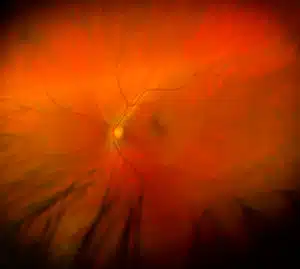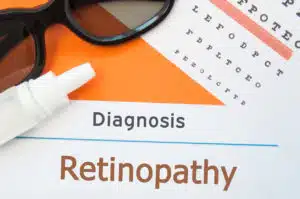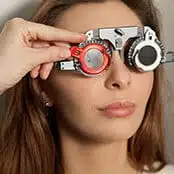Your eyes are a highly sensitive organ and are particularly susceptible to changes in temperature, humidity, and other environmental factors. While your body is usually good at adapting to the weather and climate, it’s still a good idea to take a few extra precautions. Winter poses a set of unique challenges for your eyes, so…
Ophthalmologist St. Louis MO
When Should I Bring My Child to an Eye Exam?
A child’s eyesight develops as they age. The first few years of a child’s life, especially from their toddler to school stages, are crucial to this development. As a parent, monitoring your child’s eyesight as they grow up is critical to their well-being. Your child’s pediatrician and eye doctor can help you maintain your child’s…
Optometrist vs. Ophthalmologist: What’s the Difference?
Our sense of sight is one of the most important senses we have and is used to understand and communicate with the world around us. You don’t realize how important having the clearest possible eyesight is until you begin to have vision problems. Safeguarding your eye health can help prevent limitations that are brought on…
What’s the Best Doctor for Your Vision Needs?
Getting the best eye care involves choosing the best doctor for your particular vision needs. Some doctors are ideal for basic vision care, whereas others are preferred for more specialized eye-health issues. Let’s talk about the main differences between the two types of eye doctors, and where you can go here in Washington for the…
Are Your Eyes Dry and Tired? Why Visit an Eye Specialist in St. Louis
Wondering why you have that burning or scratchy sensation in your eyes? Are they getting easily tired and sensitive to light? You may have what is known as dry eye syndrome. This condition occurs when your tear glands aren’t producing either an adequate amount of tears or good quality thereof to properly lubricate your eyes….
Risk Factors of Macular Degeneration
Have you been experiencing vision changes, such as unusual blurring or distortion? Are these changes beyond just a lack of focus and clarity as is typical of presbyopia (farsightedness) or myopia (nearsightedness), but rather a lack of being able to see things in the center of your vision? If so, then you might have a…
Different Types of Glaucoma
Glaucoma is a leading cause of irreversible blindness in the United States, and it currently affects more than three million Americans. Glaucoma is an umbrella term referring to a cluster of related eye conditions that cause damage to the optic nerve, which sends visual signals from your eye to your brain. It is usually related…
Diabetic Retinopathy: Symptoms, Causes, and Treatment
Diabetic retinopathy is a vision problem that can develop in someone who has type 1 or type 2 diabetes. This complication of diabetes is caused by damage to the tiny blood vessels in the retina, which is the light-sensitive lining in the back of the eye. Retinopathy is one of the many reasons why diabetes…
What Is a Diabetic Eye Exam?
High blood sugar levels associated with diabetes can lead to a number of eye problems, primarily causing damage to the retina at the back of the eye. The retina is a thin layer of delicate tissue that lines the inside of the eye. It contains millions of light-sensitive cells and nerve cells that receive, organize,…
Things to know before undergoing a diabetic eye exam
Diabetes can cause damage to blood vessels throughout the body. You’re probably familiar with diabetic foot – which is a result of vessel damage leading to diabetic neuropathy, causing foot numbness and sores – but diabetes can also lead to eye problems such as diabetic retinopathy. This tends to cause blurriness, difficulty distinguishing colors, and…


